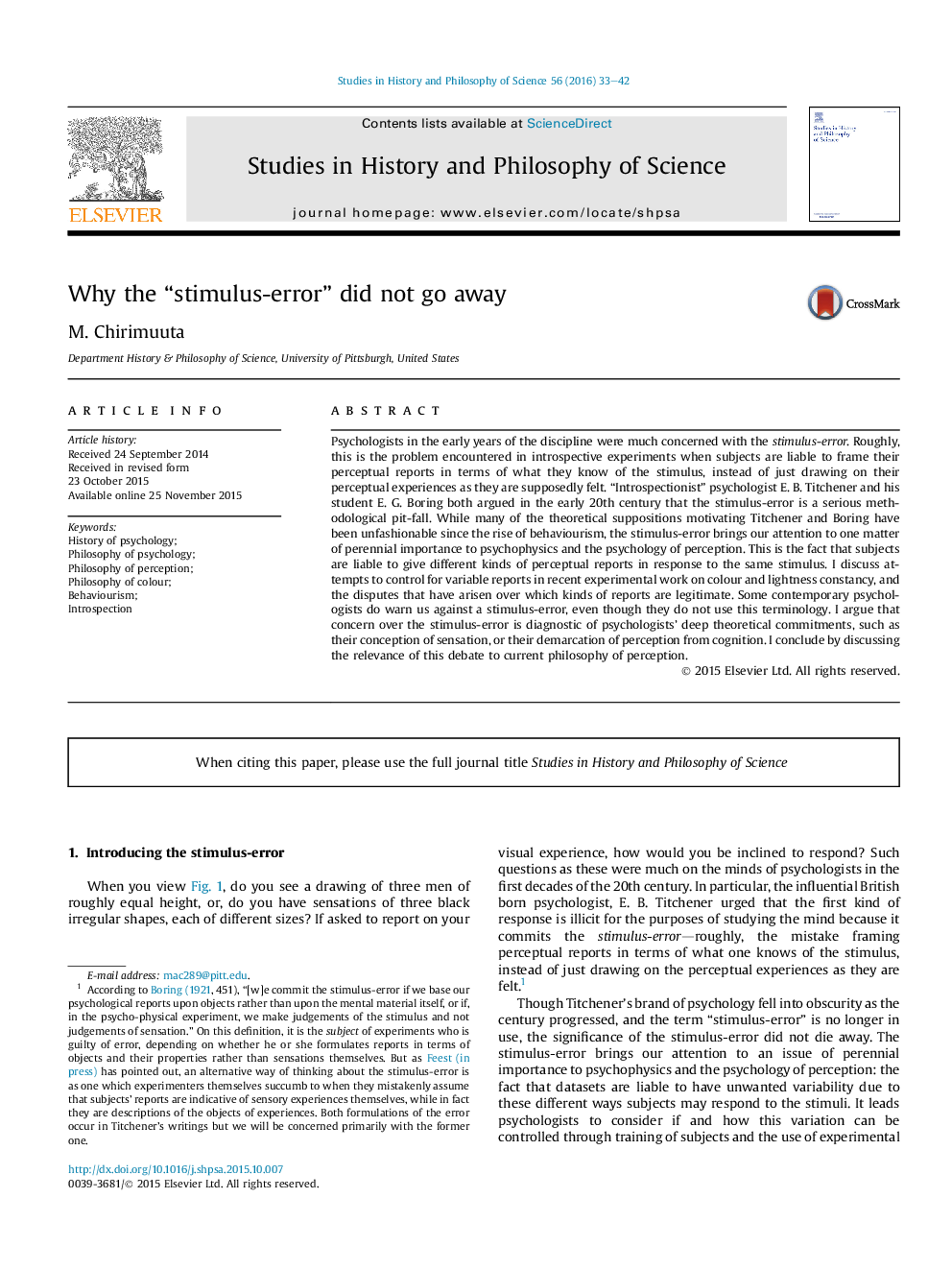| کد مقاله | کد نشریه | سال انتشار | مقاله انگلیسی | نسخه تمام متن |
|---|---|---|---|---|
| 7551646 | 1490326 | 2016 | 10 صفحه PDF | دانلود رایگان |
عنوان انگلیسی مقاله ISI
Why the “stimulus-error” did not go away
دانلود مقاله + سفارش ترجمه
دانلود مقاله ISI انگلیسی
رایگان برای ایرانیان
کلمات کلیدی
موضوعات مرتبط
علوم انسانی و اجتماعی
علوم انسانی و هنر
تاریخ
پیش نمایش صفحه اول مقاله

چکیده انگلیسی
Psychologists in the early years of the discipline were much concerned with the stimulus-error. Roughly, this is the problem encountered in introspective experiments when subjects are liable to frame their perceptual reports in terms of what they know of the stimulus, instead of just drawing on their perceptual experiences as they are supposedly felt. “Introspectionist” psychologist E. B. Titchener and his student E. G. Boring both argued in the early 20th century that the stimulus-error is a serious methodological pit-fall. While many of the theoretical suppositions motivating Titchener and Boring have been unfashionable since the rise of behaviourism, the stimulus-error brings our attention to one matter of perennial importance to psychophysics and the psychology of perception. This is the fact that subjects are liable to give different kinds of perceptual reports in response to the same stimulus. I discuss attempts to control for variable reports in recent experimental work on colour and lightness constancy, and the disputes that have arisen over which kinds of reports are legitimate. Some contemporary psychologists do warn us against a stimulus-error, even though they do not use this terminology. I argue that concern over the stimulus-error is diagnostic of psychologists' deep theoretical commitments, such as their conception of sensation, or their demarcation of perception from cognition. I conclude by discussing the relevance of this debate to current philosophy of perception.
ناشر
Database: Elsevier - ScienceDirect (ساینس دایرکت)
Journal: Studies in History and Philosophy of Science Part A - Volume 56, April 2016, Pages 33-42
Journal: Studies in History and Philosophy of Science Part A - Volume 56, April 2016, Pages 33-42
نویسندگان
M. Chirimuuta,